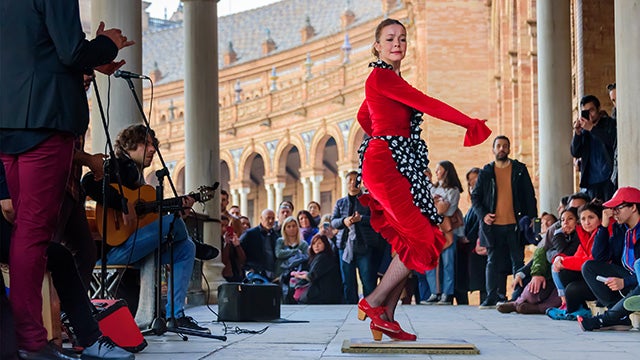The Aspen Institute Global Alliances Program, together with the Richardson Center for Global Engagement and the Flow Collective, held the first-ever innovation workshop in Havana, Cuba, last October. Below, Mickey Bergman, executive director of the Aspen Institute Global Alliances Program, explains the significance of President Barack Obama’s visit to Cuba.
President Barack Obama’s visit to Cuba marks the first American president to set foot on Cuban soil since 1928. This is an inflection point in history and a true success of diplomacy. In the last 90 years, Cuba and the US have often found themselves glaring at each other across a gulf of political ideology, economic isolation, and even nuclear weaponry. But just as the US has changed and Obama has opened the door to a new kind of relationship, Cuba too is undergoing a generational transformation.
On the American side, Obama’s visit caps off an effort by his administration to reinterpret the embargo so broadly that future administrations will not be able to “put the toothpaste back in the tube” — or revert back to previous behavior. The president is still bound by the law, but his Treasury Department has expanded the type and availability of exceptions and licenses available to American businesses and civil society groups seeking to engage with Cuba. This reinterpretation has increased economic and social engagement.
Cubans themselves are beginning to reinterpret their own revolutionary ideals and social compacts. Cubans are keenly aware of the lessons from the collapse of other socialist systems like Russia or Vietnam. They seek a future where the beliefs of their revolution live on, but more economic opportunities and global engagement create a stronger nation and a happier people.
As economic reforms continue, Cubans seek to preserve two tenets of their revolution. The first is preservation of a dignified safety net that ensures every Cuban has a job, a base salary, a free education, free health care and assistance in basic commodities like food and other needs through a vouchers program. Cubans have given up the socialist dream of equality of income, but they do not embrace the unbridled capitalism (and vast inequalities) of the West.
The second preservation is the protection of workers. As Cubans implement economic reform and private (or as Cubans refer to it: ‘non-state’) industry grows, they will remain tied to the socialist concept that workers are the foundation of economic systems. There is substantial business development in Cuba, but all of these new businesses are cooperatives, not corporations.
Cuban President Raul Castro’s government has been quietly implementing thousands of economic reforms. One is the establishment of self-employment permits(Cuentapropistas), and 40 percent of the workforce has them. These permits are the first step in unleashing the entrepreneurship of the Cuban people. While permit holders can’t get capital investment from a bank yet, they can employ up to 200 people. This reform alone has created a private restaurant industry, private bed and breakfasts, dance schools, and jewelry businesses; it has also jump started a technology sector, providing Cubans with smartphone applications and internet platforms.
In fact, nothing is spreading so fast in Cuba as the internet. In July 2015, I observed that only international hotels had internet connections. When I returned in October 2015, there were 40 hotspots in Havana providing internet access for ordinary Cubans. By December 2015, there were 120 hotspots. I predict Cuba will be integrating fully online within a year.
Our recent travels to Cuba showed us the beginning stages of an entrepreneurial ecosystem. At our workshop, Cuban and American entrepreneurs in technology and service sectors shared lessons, and best practices, and developed new products and solutions to common challenges. It is precisely this kind of engagement that will create the bonds to forge a new relationship between Cuban and American businesses and citizens.
Obama’s visit marks a new direction. But it is the next president and the next Cuban leader who will have the real work before them. In January 2017, America will have a new leader and in 2018, Castro will step down, paving the way for a new leader in Cuba. As generations change and the Castro family moves on, a fresh start between Cuba and the US becomes a tantalizing prospect. Continuing robust engagement by American businesses and civil society with Cubans will increase understanding and clarify the many mutual interests we share, and a new generation of Cubans and Americans can carve their own ways of collaborating and working together.
Michael “Mickey” Bergman is the executive director of the Aspen Institute Global Alliances Program.
